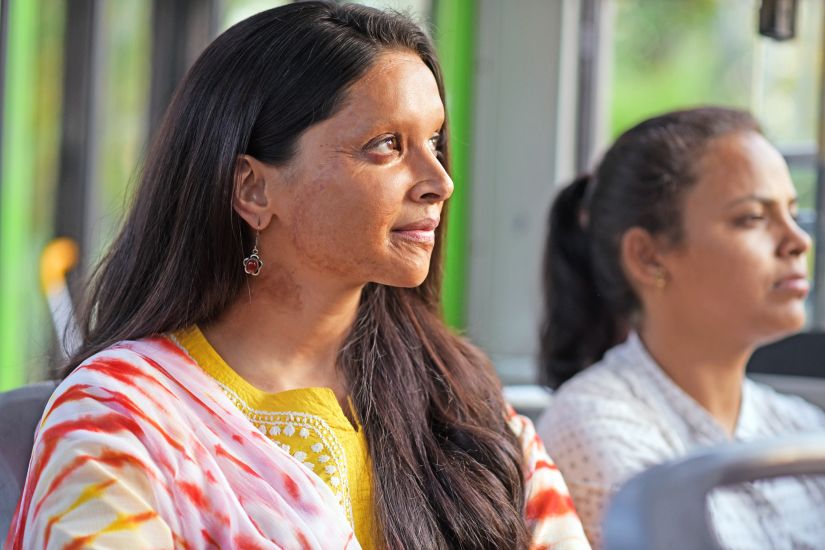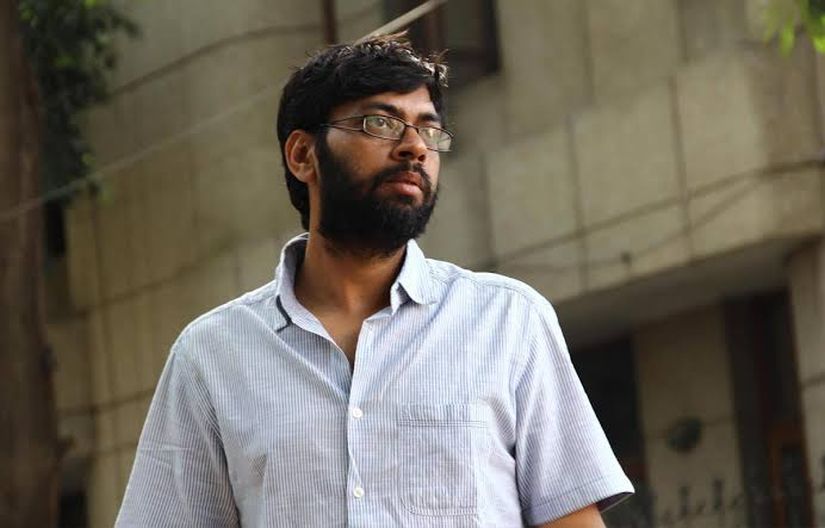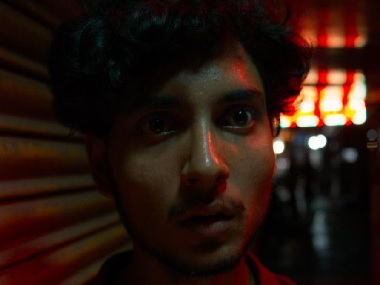Meghna Gulzar’s _Chhapaak_ , that releases this week on 10 January, will see Deepika Padukone play Malti, an acid attack survivor who takes it upon herself to seek justice from her perpetrator in court. The film is based on the life of Laxmi Agarwal, who set an example by leading life on her terms after the horrific attack. While it will be interesting to watch where Meghna goes with her interpretation of an acid attack survivor’s life, the other side of the act has been captured in a short film, _Binnu Ka Sapna_ , directed by Titli helmer Kanu Behl, which released in December 2018. The narrative revolves around a young man, who is pushed to his extreme, owing to circumstances while growing up. It is exactly why he cannot get hold of his dream, and instead, turns toxic in his relationship. [caption id=“attachment_7871831” align=“alignnone” width=“825”]  Deepika Padukone in a still from Chhapaak[/caption] The film ends with a shot of him splashing the acid, followed by a scream in the background of a blank screen. Interestingly, this is exactly where the story of Chhapaak starts, and the perspective changes to that of the girl, instead of the boy. “You can take any perspective, and your characters can still be very three-dimensional and strong. I don’t think the film can have a wrong or bad perspective. It can have bad writing or direction. But you choose to take the perspective you want to interpret the story from,” says Behl, in an exclusive interview. He says the journey in Binnu Ka Sapna is a much more individual one as compared to Titli. The protagonist in the latter case has a “living breathing option” of choosing who he wants to be, as opposed to bearing the family’s influence on him, as in the case of Titli. Excerpts from a chat with the filmmaker below. You said Binnu Ka Sapna is rooted in the emotion of anger. What was the cause of this anger in your life? The cause of this anger in my life was a lot of immaturity. It was a result of a myriad emotions all playing out together. I was unable to process the presence of personal ambition and the ability to balance relationships. It’s not something that’s unique. A lot of people slip into that vortex, where they’re unable to handle it. So I went through a trying period where I lost control. I had to go back, reflect, and correct course. How did you ensure you channelise the anger into a film, and not anywhere else? My process is only to speak about an emotion once I have distance from it. A lot of time has passed now so now, I can look at it objectively. The things that often affect you or move you deeply are associated with loss. The emotions that have the strength to take control and sway you along often end up in a deep sense of loss. The journey of that loss, what you were and are now, that gaze of retrospect helps you look at it in new light. [caption id=“attachment_5948291” align=“alignnone” width=“825”]  A still from Binnu Ka Sapna. Twitter[/caption] Was the film also a means of catharsis from the anger? Filmmakers who say their films helped them cope with a feeling their film is based on are merely romanticising the idea. If there’s a little bit of catharsis, it’s only from reliving the experience and looking at it from a new perspective. But I don’t think the purge of that emotion can or should come from the film. Because then you’re still in the throes of that emotion. You also said public outrage against the 2012 Delhi rape case or instances of acid attacks across the country in the past decade led to a very myopic deconstruction of these crimes. Is Binnu Ka Sapna an attempt at explaining the other side of the story? It’s not an attempt at explaining the other side of anything. It’s just my point of view. It just happens to be the collective gaze of everyone involved in the film to look at it in a nuanced perspective, that you don’t see very often. The truth is in the times we live in now, there is a massive othering taking place of people we don’t associated with it. So the idea was to go into those areas and understand them, not just for the sake of understanding them. I feel the moment you other the perpetrator, you lose any chance of getting to the root cause. This is, to my limited understanding, an insightful take on where this is coming from, and how we can battle it. It’s easy for us to empathise with the victim, and say, ‘That was dastardly and the guy should be put away.’ Of course, they should be put away but that will not end the problem. What will get us closer is to know their point of view, and understand why that monster became that monster. There have been a lot of vigilante dramas in recent memory, like Simmba and MOM. Do you think they only reflect public outrage or have a part to play in it too? Most of the stuff we see is irresponsible and dangerous because at the end of the day, it’s perpetuating violence. If there has been an act of unfathomable violence against someone (be it a man or a woman, let’s take gender out of the debate for a bit), to answer it with an equally dastardly act of violence, then to condone it, and show it as the solution, is a far more dangerous act than the previous one. Anything that is ‘reactionary,’ and looking at the perpetrator as a guy who has no life outside the crime, amounts to short-term justice, and some sort of lynching. It is an act of revenge, and we all know where revenge takes us. It’s not a happy place. Recently, the climax of _Mardaani 2_ showed Rani Mukerji’s character of a top cop lynching a minor, with a traumatic past, for committing heinous crimes against women and girls. In her interviews , she said women need to learn self-defense till the time society evolves as a whole. Do you think that approach is practical in the times we are in today?
If women are going to give back to men, then what will be the difference between both? Women are women today because they’re more evolved creatures than men. This is typical of the debate we’re seeing everywhere today. If our neighbour Pakistan is persecuting minorities, why should we do it as well? They say, “Look at what they’re doing!” But I say, “Look at their halat (condition). Look at what they’ve come to!” This will just get us deeper into the cycle of revenge and violence. Historically, that’s not what India is.
In recent non-sensationalist police procedurals like _Soni_ and _Delhi Crime,_ the perspective is that of a female police officer. They often struggle to hold back their animal instincts, and look at justice through a clinical lens. How important is this conflict between political correctness and embracing one’s instincts? I don’t mind any narrative as long as they’re interested in all the human beings in the story. The opportunity to tell a story is a fabulous opportunity for any filmmaker, and it should be used to its optimum capacity to etch out each character into a fully rounded human being to give us the most intimate experience of the lives we’re living. Do we want to watch films with just types or humans, with all their follies, strengths and beauties in them? All humans have a mirror all their lives. At some point, we get shy of looking into that mirror again. As we grow older and live our lives, we make mistakes, and see tiny scars appear in that reflection. So we don’t like to look into that mirror. But it’s the most cathartic experience to look into that mirror, through any form of art, because we’re looking at our souls. That gaze is a much more effective deterrent rather than looking away from it. We are on the verge of the 2012 Delhi rapists being hanged. How crucial is it to explore the criminal psychology there? Would you ever get into that as a filmmaker? I think it’s terribly important to know more about them, and not just term them as faceless monsters. Whether I’ll do it myself, at this point, no. I’ve already made a feature on the circular patriarchy and violence in a family, which, was to an extent, inspired from my mulling over the Nirbhaya incident. As a filmmaker, most of what I had to say, I’ve already said what I wanted to. Maybe it’s time to explore other areas of how we live. Maybe if I have a fresh insight tomorrow, I may want to explore it again. [caption id=“attachment_7871861” align=“alignnone” width=“825”]  Kanu Behl. Twitter[/caption] Do you believe these are exciting times for cinema as there is an audience for both the story of an acid attack survivor in Chhapaak and that of an acid attack perpetrator in Binnu Ka Sapna? I don’t know how much we’re able to reach those audiences for a certain kind of story. It’s important to stare that truth in the eye, and stop saying these are exciting times for storytelling. Because honestly, we’re begging to live in times where there’s no nuance, we’re running away from a debate. In a country that was pacifist and moderate in its approach, people have to take sides today. There’s a collective dumping down of self-reflection because we refuse to acknowledge a person can be both good and bad. That’s not the place we want to be in. That’s not the 70 years of Independence we’re heading into. I want to wind the clock back to the time when we reflected before reacting. Binnu Ka Sapna is currently streaming on Mubi India.


)
)
)
)
)
)
)
)
)



